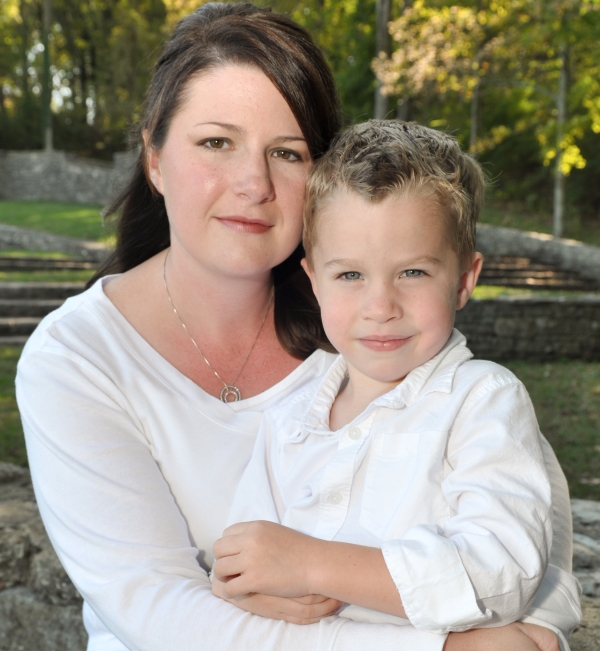Symptoms of Autism
Parents hope, when they bring a child into the world, that the child will be healthy, develop normally, and thrive. If this is their first child, it can be hard for parents to gauge whether their child is developing typically and meeting their childhood milestones. Unfortunately, the concerns of new parents are often downplayed, with the parents dismissed as ‘nervous’ and ‘too worried’. If you find autism symptoms in your child and suspect that your child has ASD, make an appointment with a child psychologist at BNC, or call reception for further advice.

The early signs and Autism symptoms, including gastrointestinal problems, tantrums, and other adverse behaviours vary widely. Some children with ASD have mild symptoms and impairments, whilst others have severe gut and behavioural issues.
Below is a list of some of the symptoms of ASD, albeit not exhaustive.
Please note, many of these behaviours are also common for typically developing children. The difference is that a child with ASD will display some (not all) of these behaviours in excess:
- Hand flapping, repeated finger movements, called stimming (self-stimulation).
- Toe walking or an awkward gait.
- Head banging
- Rocking back and forth.
- Humping toys and furniture (usually to ease gut discomfort or pain).
- Fussy eating (e.g., prefers white foods containing refined wheat and dairy).
- Sensory hypersensitivity or hyposensitivity i.e.,responding too much, or too little, to certain physical sensations.
- Sensory overload (e.g., to signs, or sounds) leading to tantrums.
- Not responding to their name, and a lack of responsiveness to other people.
- No pointing at objects.
- Not waving to say ‘hello’ or ‘goodbye’.
- Difficulty following objects and/or people with their eyes (‘eye tracking’).
- Poor eye-contact in social interactions.
- No reciprocal social smiling or imitation of actions.
- Does not reach out to hold the person when being picked up.
- Does not like to give or receive cuddles.
- Does not call to their parents or make basic requests.
- Does not share enjoyment or toys.
- Does not speak or does not have age-appropriate use of language (it is delayed).
- Repetitive and/or obsessive behaviours.
- Gets very distressed if their activities are interrupted.
- Inflexibility to changes in routine or personal/external environment.
- Lines up cars or toys instead of playing with them appropriately (e.g., using cars as vehicles).
- Is aggressive towards other children.
- Repeating words (echolalia)or nonsensical phrases.
Autism Symptoms
Whilst every child with ASD has behavioural problems to some degree, a formal assessment will specify the degree of severity and any co-morbidities.Symptoms fall in three key areas:
- Quality of reciprocal social interaction (e.g., emotional sharing, offering and seeking comfort, social smiling and responding to other children);
- Communication and language (e.g., stereotyped utterances, pronoun reversal, social usage of language); and
- Repetitive, restricted, and stereotyped interests and behaviour (e.g., unusual preoccupations, hand and finger mannerisms, unusual sensory interests).
Early Signs of Autism
 Parents are usually the first to pick up on their child’s ASD, since they spend the most time with them and know them well. Parents often observe behaviours that are easily missed by a pediatrician, who may not have time in a brief consultation.
Parents are usually the first to pick up on their child’s ASD, since they spend the most time with them and know them well. Parents often observe behaviours that are easily missed by a pediatrician, who may not have time in a brief consultation.
If you think that your child’s ASD behaviours were missed by a pediatrician,it is worthwhile to seek a second opinion by our expert team at BNC.
Pediatricians are valuable resources, but do not discount your own observations and knowledge of your child. It is important that parents educate themselves to differentiate between typical, and atypical, behaviours. Keep monitoring your child’s development and behaviours, act swiftly if you have concerns, trust your instincts,and seek advice from an ASD professional. Early intervention is the best kind of intervention. The biggest barrier to effective treatment is acting too late, and unfortunately this is often the case when pediatricians miss the ASD. In any case, regardless of whether your child has ASD, a developmental disorder, or is slow to develop, your child can benefit from early intervention.
INTENSIVE EARLY INTERVENTION
The rate at which a child develops varies greatly, and parents and healthcare professionals often hope that the child will eventually catch up. If a midwife, nurse, childcare worker, or kindergarten teacher raises concerns about your child’s development, this might come as a shock. If you had some pre-existing concerns yourself, you may feel guilty for not acting sooner. All parents react differently to a suggestion of ASD. Some parents spring into action, seeking information and advice, whilst others refuse to accept the permanency of the disorder and do nothing. Some parents feel guilty or ashamed and may hide their concerns from family members and friends.
When it comes to ASD, intensive early intervention is vital. If therapies are started soon, ideally by the age of 18 months, your child will have a greater chance of behavioural change.
However, at whatever age, there are therapies to reduce the behavioural symptoms of ASD.
Related Read: Neurotherapy for Treating Autism
Gastrointestinal Dysfuntion & Autism

Stomach pains, diarrhoea, constipation, bloating, flatulence, and humping are all signs of intestinal disorders. In 2010, a multidisciplinary panel of experts reviewed the medical literature on these physical symptoms in children with the aim of generating evidence-based recommendations (see[LINK]). The panel came to the consensus that (a) gastrointestinal disorders and associated symptoms are commonly reported in ASD and (b) care providers should be aware that problematic behaviours in patients with ASD may be a primary symptom of underlying gastrointestinal disorders.
Thus, it is imperative that all children have gastrointestinal concerns thoroughly assessed.
Autism And Tantrums
Screaming and tantrums are often seen in children with ASD. However, these tantrums can be associated with gastrointestinal disorders, and are not necessarily the result of ASD.
Gastrointestinal disorders are often related to nutrient deficiencies, food sensitivities, and reactions to food colourings, additives, and preservatives that some people cannot process.
The difference is the pervasive nature of the tantrums in children with ASD.
Regressive Autism
It is important to know that the early signs of Autism are not necessarily abnormal behaviours, but rather the lack/absence of normal behaviours. A baby or infant with ASD may seem quiet and ‘easy’ due to their lack of activity.
Many children with ASD start to develop communication skills, respond socially, and play appropriately, beforere gressing between the ages of 12-24 months. At this age many withdraw, become socially and emotionally isolated, and lose some (or all) of the language that they had previously acquired. Developmental regression of this nature can be a sign of regressive autism. The regressive nature of this ASD suggests that there is a mechanism at play that causes damage to the developing brain. If ASD is diagnosed,and therapies are started early, there is high chance that developmental regression will be halted.




